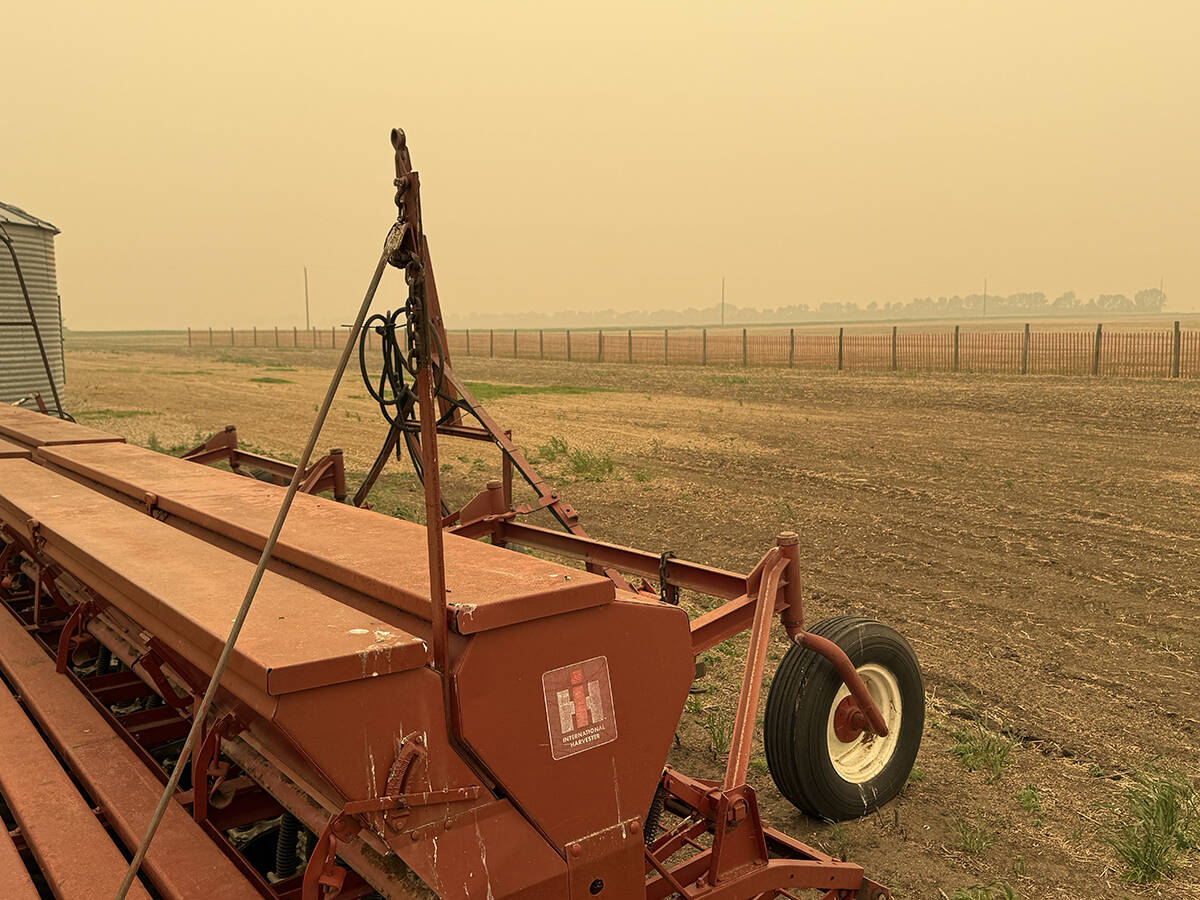Prairie farmers and ranchers frustrated by ongoing U.S. border restrictions on Canadian cattle are striking back by refusing to allow American hunters on their land.
Courval, Sask., rancher Gerry Duckworth said requests are growing daily for his signs that say American hunters are not allowed until the U.S. border permits live Canadian cattle imports. Already, more than 3,000 signs have been posted across prime duck and geese hunting grounds in Saskatchewan and Alberta.
“We’re kicking the U.S. hunters off the property,” said Duckworth, who has already asked unhappy duck hunters to leave his land since the game bird season began at the beginning of September.
Read Also

Wildfires have unexpected upside this year
One farmer feels smoke from nearby wildfires shrouded the July skies and protected his crop from the sun’s burning rays, resulting in more seeds per pod and more pods per plant.
“It’s their fault the border’s not open,” said Duckworth, who estimates he lost $250,000 in the first year of BSE and sees no hope that normal trade will resume soon.
Duckworth and his neighbours have posted No American Hunting signs on almost 30 kilometres of shoreline around Old Wives Lake in an effort to tell U.S. hunters that decisions by their government are harming Canadian cattle producers.
By prohibiting American hunters, he is hoping they will lobby their politicians and increase pressure to reopen the border.
“There’s enough powerful American senators (who) hunt in Canada that enough will be affected,” said Duckworth.
A group of producers in the Quill Lakes area of north-central Saskatchewan had 500 copies of the signs printed for their area once they heard about Duckworth’s campaign.
“What are people supposed to do? It’s a way of participating. They can physically tell people no,” said Duckworth.
“It’s our only form of retaliation. With this spineless government, nothing is going to happen.”
It’s the second year Ken Almey of Mariapolis, Man., has politely turned away American hunters from hunting his land because of BSE.
The Americans are welcome when the border reopens, but not before, he said.
Almey posted his own homemade sign as his show of protest and hopes other farmers follow suit.
Neil Jahnke, past-president of the Canadian Cattlemen’s Association, said he is not going to block American hunters from hunting on his land.
“I certainly am not. I certainly haven’t heard of a border opening by closing one or making friends by throwing roadblocks in front of them,” said Jahnke, who ranches near Gouldtown, Sask.
“They’re welcome to come and hunt here.”
Rancher and outfitter Calvin Day of Kyle, Sask., is torn between a loyalty to fellow ranchers and a need to pay bills with the money from his outfitting business.
“As a rancher I agree with it. As an outfitter, it’s not going to work so well,” said Day from his ranch in southern Saskatchewan.
“I’m kind of torn between what I should be saying and what I should be doing.”
As a compromise, Day plans to continue guiding the American hunters who have prepaid for his guiding services, but will refuse permission to American hunters who come to his door.
Hal Stupnikoff, executive director of the Saskatchewan Outfitters Association, said the organization sympathizes with beef producers but he believes their tactics will backfire.
“It’s going to be interpreted as anti-American feelings,” said Stupnikoff of Prince Albert, Sask.
For rural areas hit by BSE fallout, turning away American hunters will increase the financial hurt, said Stupnikoff. He estimated hunting provides about 4,000 jobs in rural Saskatchewan during the fall.
Kevin Callele, director of resource allocation for Saskatchewan Environment, said during September and October, small towns are jammed with hunters buying gas, eating in restaurants and staying in hotels.
“It’s a huge economic benefit, huge.”
In Saskatchewan in 2002, there were about 8,666 non-Canadian game bird hunters, mostly American, and 12,462 Saskatchewan hunters.
In Manitoba in 2003, there were about 11,300 Manitoba hunters and 5,732 non-resident, mostly Americans, said Paul White with Manitoba Conservation. He estimated non-Canadian hunters add about $5 million to the rural economy.
In Alberta in 2003, there were 9,292 non-Canadian hunters and 84,873 Alberta hunters.














